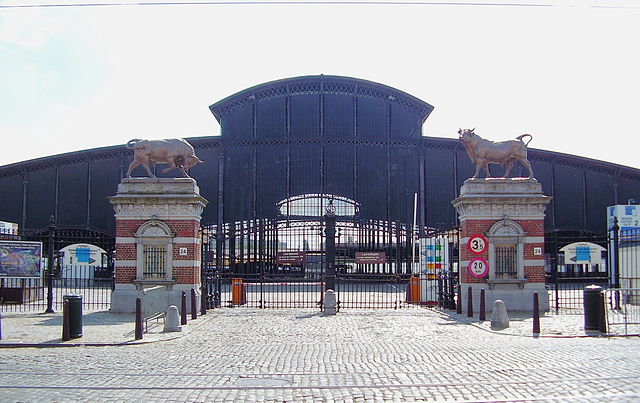One of the busiest food markets in Brussels will house what is set to be among the largest integrated solar panel installations in Europe after it teamed up with a local start-up to carry out the feat.
Dating back to the late 19th century, the market halls of the Marché des Abattoirs in the southern municipality of Anderlecht will soon be outfitted with 1.2 hectares of photovoltaic panels.
Plans to renovate the roofing of the market hall's sprawling site of 11 hectares —home to a bustling and popular food and produce market— had been slow due to the fact that the site is listed and protected as part of Brussels' architectural heritage.
Related News
The installation will have the capacity to power up the equivalent of 700 households and will be the largest building-integrated solar panel installation in an urban environment within the European Union (EU), according to a press release.
The renovations of the market hall's roof will be the first since the original zinc roofing was replaced by what was meant to be a temporary waterproof cover, which has nevertheless remained in place for decades.
"Unfortunately, this temporary solution has been in place for 40 years and is causing condensation problems that accelerate the degradation of the halls," Léopold Coppieters, co-founder of Brussels photovoltaic film Skysun said.
"This project proves that renewable energy has a place in the urban landscape and that it can also be aesthetically pleasing, as this one is part of a heritage building."
The renovation costs were described as a "win-win-win" situation for all parties involved, with the photovoltaic firm's welcoming a "long-term and profitable investment" while the Abattoir benefiting from near cost-free renovations of its worn-out roofing.
The project will also have the added novelty of selling any surplus of the local production of energy directly to consumers, rather than reselling it to a grid operator.
"Ordinarily, photovoltaic projects tend to sell their surplus in one block to a conventional energy supplier. This is therefore an innovative solution that shows the rising popularity and potential of decentralised models of energy that bring consumers and energy producers closer together."
Gabriela Galindo
The Brussels Times

